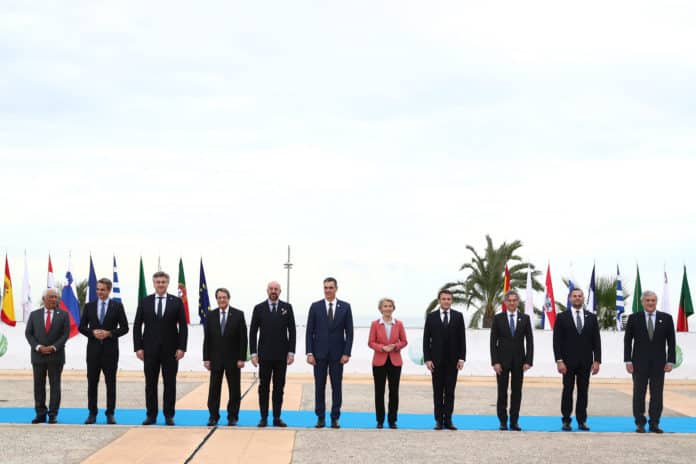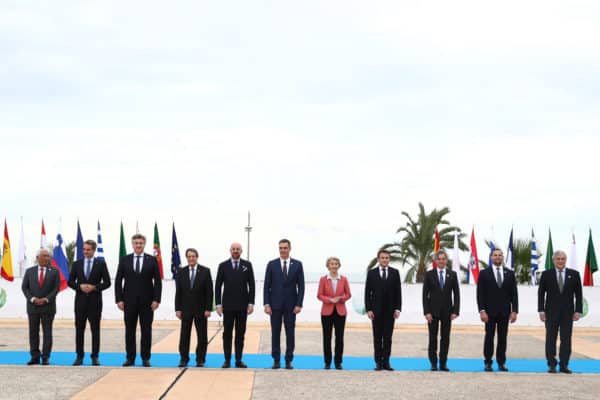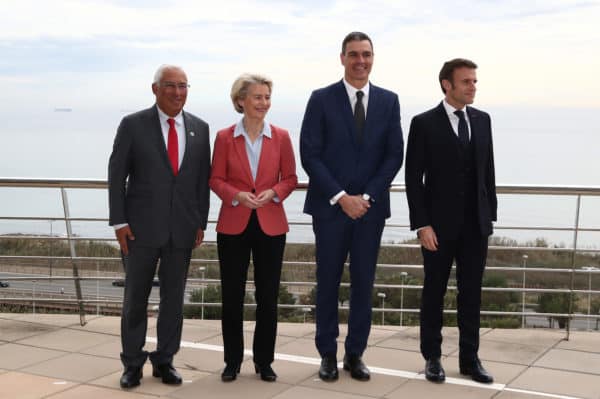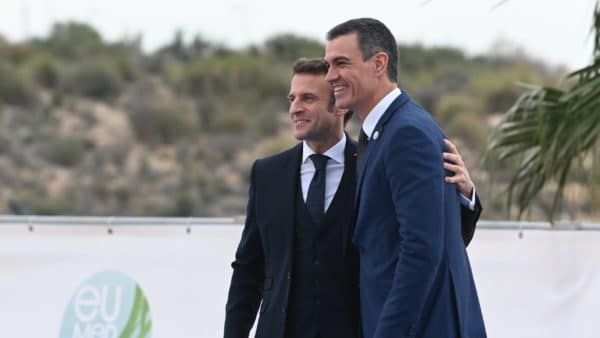Nine European leaders took a common front against Putin’s energy blackmail when they met on Friday at the Ciudad de la Luz in Alicante. In a joint declaration they declared an urgent need to achieve a “dynamic and effective” drop in the price of gas.
A common front of southern Europe in the face of Putin’s energy blackmail, a situation aggravated by the war in Ukraine. This was the main conclusion that was drawn on Friday, after the Euro-Mediterranean summit held in Alicante.
The heads of state of nine Mediterranean countries ( Spain, France, Italy, Portugal, Greece, Malta, Slovenia, Croatia and Cyprus ) all met at the Ciudad de la Luz, together with the president of the European Commission, Ursula von der Leyen, and the President of the European Council, Charles Michel, following which they issued a statement confirming the need to achieve a drop in the price of gas that is “effective and dynamic”.
They also affirmed the growing influence of the Mediterranean area in the European Union as a whole, the final point that they made following a day of intense discussions in Alicante.
The day began with a definitive push for an agreement on the construction of what will be the first major European green hydrogen corridor, made by the Spanish president, Pedro Sánchez; his French counterpart, Emmanuel Macron, the Portuguese Prime Minister, António Costa, and the President of the European Commission.
The group then moved to the Casa Mediterráneo, where the European leaders had lunch. At around 4:00 p.m., the participants then made an appearance in Ciudad de la Luz where they held two meetings.
The initial gathering confirmed the common position toward the provision of solutions to the energy crisis that the war in Ukraine has caused this year. This meeting was followed by discussions in which the new rules for European fiscal policy were addressed.
The first to appear in Ciudad de la Luz was President Sánchez. The leader of the Spanish Executive hosted the heads of state and government and the rest of the participants in this Mediterranean summit.
After Sánchez, the Italian representatives appeared, with the absence of their prime minister, Giorgia Meloni, who withdrew at the last minute because of flu. The vice president and foreign minister, Antonio Tajani, attended her place. Thereafter, the remaining leaders arrived, with Von der Leyen and Michel the last to enter the film facilities.
The summit passed more quickly than anticipated with the joint appearance of the nine leaders, initially set for 8:15 p.m., underway by 7:00 p.m.
Of course, the politicians waited for the end of the World Cup penalty shootout between Croatia and Brazil, following which the Croatian prime minister, Penkoviche, was greeted with applause by both the media and his colleagues.
As a result of his high state of emotion, the Croatia representative was the only one of the leaders who did not make a statement, limiting himself to assuring the gathering that the agreement reached in Alicante seemed very fruitful to him.
In their statement, the leaders recalled the way in which they have acted at the same continental level on other occasions, such as the financial crisis of 2008, while stressing the importance of learning from the mistakes that have been made in the past. That is why they also called for greater flexibility in fiscal rules. This was another of the items on the agenda, although fiscal issues took a backseat to the current energy emergency.
“We, the countries in the south of the EU, aspire to promote European responses to the great challenges that lie ahead”, read the joint declaration that was approved following the meeting, where European strategic autonomy was one of the central themes of the debate.
The first leader to speak individually was the Spanish leader. Sánchez asked the EU to listen carefully to the Mediterranean countries because they represent 45% of the European population, they have a “renewed strength” and they aspire to achieving greater influence in the European framework.
Another of the most anticipated statements was from the French President Macron, who delivered a speech in full harmony with Sánchez. In fact, the two leaders gave an impression of ‘closeness’, based on the different gestures they shared during their time together in Alicante.
Macron said that the talks produced “real convergence toward both security of (energy) supplies and reduction of gas prices.” He said the leaders share “collective support for grouped purchases” of gas and are aiming jointly at agreeing medium and long term contracts for the next three to five years to bring prices down.
Macron said France hopes an agreement can be reached at the EU energy ministers meeting on Tuesday for “a packet of technical measures to reduce prices … and limit further speculation.”
The EU-Med9 agreed to hold their next meeting in Malta in 2023.








